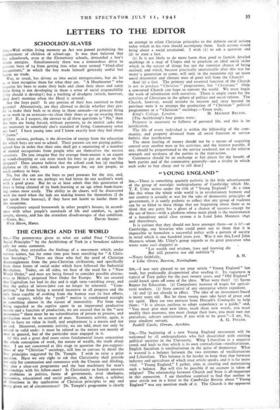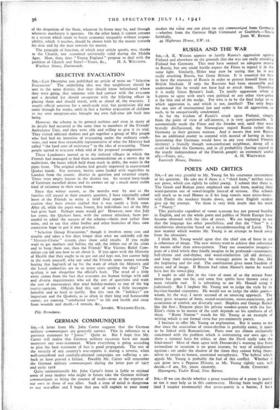SIR,—The beginning of a new Young England movement will be
welcomed by all undergraduates who feel dissatisfied with existing political societies in the University. Whig Liberalism is a negative creed, and leads to that which is its own contradiction—totalitarianism. English Socialism is totalitarianism in the guise of democracy. What is wanted is a balance between the two extremes of totalitarianism and Liberalism. This balance is far harder to keep than that between industry and agriculture of which your article speaks, and it is far more vital. "Young England," I gather, aims at creating and maintaining such a balance. But will this be possible if no account is taken of religion? The relationship between Church and State is all-important in this connexion. I am therefore surprised to find that neither in your article nor in a letter to the Cambridge Review about "Young England" was any mention made of it. The Church is the opponent
of the despotism of the State, whatever its forms may be, and through whatever machinery it operates. On the other hand, it cannot, consent to a system which tends to foster economic inequality without respon- sibility, which, it teaches, should be shown both by the master towards his man and by the man towards his master.
The principle of function, of which your article speaks, was, thanks to the Church, one accounted universally valid during the Middle Ages. How, then, does "Young England" propose to deal with the problem of Church and State?—Yours, &c., H. A. WILLIAMS. Warfieet Street, Dartmouth.



























 Previous page
Previous page